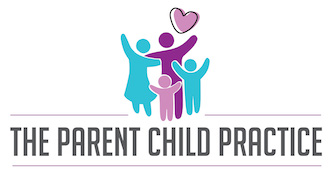In our current educational system, we are consumed with the idea of testing students. It has become the norm that we use tests to help determine admission to schools or colleges and even if a student will graduate with their high school diploma or be promoted to the next grade. Teachers, parents, and students bear the weight and stress of all of this testing and it can become very anxiety provoking for individuals that struggle with testing due to a disability or multiple disabilities.
For individuals with disabilities they often rely on accommodations to help them have a fair opportunity at testing. These accommodations may include extra time to complete the testing, extra breaks, a reader, or ergonomic accommodations for computer test-takers. Given the importance of these accommodations for students who are taking these life changing tests, you can imagine the sheer terror experienced by an individual when they find out that they no longer qualify for accommodations for tests like the GRE, MCAT, LSAT, Praxis, GMAT, TOEFL, etc. This often occurs because the testing is outdated (5 years or more) or the individual never received extensive/comprehensive testing for their 504 plan or even in some cases for their Individualized Education Plan (IEP) for ADHD.
There has been an upsurge in requests for testing accommodations and, as a result, testing agencies have had to establish clear procedures to address the ever-increasing volume of requests. The testing agencies are required to individually assess the disability documentation to determine the appropriateness of the accommodation requests. When disability documentation is insufficient or does not make a compelling case for why accommodations are still needed, then individuals will find that they no longer qualify for testing accommodations despite their previous diagnosis of a disability such as ADHD, dyslexia, etc.
Occasionally individuals will come to my office exasperated because they have seen another evaluator for updated psychoeducational testing and after the paperwork was submitted they were denied for the continuation of testing accommodations. This can be a very frustrating and upsetting experience and can even result in life plans being altered because the individual has to postpone taking the high stakes test and applying to graduate programs.
When individuals decide to work with me, I explain that it is important that they are familiar with the psychoeducational testing process for disability documentation and the requirements for the testing agencies.
Here are some tips about understanding the testing process for high stakes graduate testing accommodations:
- Testing for accommodations cannot be based on one single data point. A good updated psychoeducational assessment should include test scores with multiple data points to support an area or areas of weakness and include descriptive information about the individual.
- Behavioral observations during testing are important! I have seen evaluations that include generic observations of the individual during testing or even in some cases no observations about the person’s behavior. Supplemental sources of information, like behavior observations, are helpful for corroborating the difficulty a person experiences because of their disability. These may include behaviors such as anxiety, fatigue, motivation, or attention issues.
- Multiple sources of information are needed to build a solid case. When individuals come to me for testing, I ask for copies of IEPs or 504 plans, academic records, college accommodation letters, etc. Clients often wonder why I request such extensive records and are sometimes reluctant to put in the work to request school records or dig up special education paperwork. I request these items because testing agencies require evidence that spans the academic career of the individual to build credibility. In my documentation update report or psychoeducational testing report I need to explain the accommodations used in the past and even explain why no accommodations may have been used in the past, but are currently needed.
- Are the accommodations actually effective? When I am testing individuals, if possible, I attempt to administer measures that allow me to demonstrate the effectiveness of some of the requested accommodations. For example, I may use a measure that allows me to test the individual without a time limit or with extended time and then compare it to the performance of a similar test that is timed. If I allow the examinee to take breaks during a measure then I will discuss how those results differed from when they took a similar test without any breaks. The testing agencies want evidence that the testing accommodations are actually doing what they are designed to do and that is improve the test taker’s opportunity to demonstrate their knowledge.
My testing process and report writing approach has been effective in helping individuals with documented disabilities continue to receive their testing accommodations. I am effective in helping individuals because my testing is comprehensive and I understand that testing data alone or self-report data alone does not ensure accommodations. I seek to work with individuals by using supporting data to build a case for the requested accommodations based on a pattern of academic difficulties.
If you are interested in scheduling an appointment for updated documentation testing or updated psychoeducational testing please contact The Parent Child Practice today.
RESOURCES
ETS Accommodations
https://www.ets.org/disabilities/test_takers/
LSAT Accommodations
https://www.lsac.org/jd/lsat/accommodated-testing
GMAT Accommodations
MCAT Accommodations





